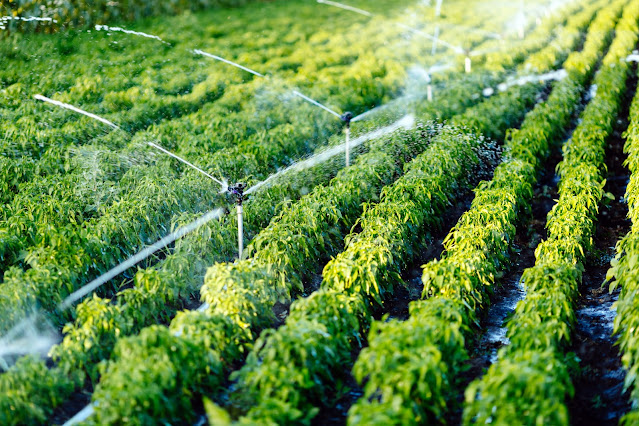Future of Farming: Exploring the Benefits of Micro Irrigation Systems
The future of farming lies in
innovative and sustainable agricultural practices that can address the
challenges of water scarcity and increasing global food demand. One such
solution is the utilization of micro irrigation systems, which have shown
immense potential in revolutionizing farming practices. These systems deliver
water directly to the roots of plants, minimizing water wastage and maximizing
efficiency. In this article, we will explore the benefits of micro irrigation
systems and their role in shaping the future of farming.
One of the primary advantages of micro
irrigation systems is their ability to conserve water. Traditional irrigation
methods, such as flood irrigation, result in significant water loss due to
evaporation and runoff. Micro irrigation, on the other hand, uses drip
irrigation or sprinklers to provide water directly to the plant's roots,
minimizing wastage. This targeted approach reduces water usage by up to 60%
compared to conventional methods, making micro irrigation a sustainable
solution for water-scarce regions.
Global
Micro Irrigation Systems Market was valued at US$ 7,572.5 Million in 2021 in terms of revenue,
exhibiting a CAGR of 5.4% during the
forecast period (2022 to 2030).
Furthermore, micro irrigation systems
enable farmers to optimize nutrient delivery to plants. By directly applying
water and fertilizers at the root zone, these systems ensure that plants
receive the necessary nutrients in the right quantities. This precision in
nutrient delivery enhances crop yield and quality, leading to increased
productivity and profitability for farmers. Additionally, by minimizing
nutrient runoff, micro irrigation systems help prevent water pollution and
protect the environment.
Another advantage of micro irrigation
systems is their adaptability to various types of crops and farming practices.
Whether used in field crops, orchards, or greenhouses, these systems can be
customized to suit specific plant requirements and cultivation methods. They
can be easily automated and integrated with sensor technologies to monitor soil
moisture levels, weather conditions, and plant health. This real-time data
allows farmers to make informed decisions regarding irrigation scheduling,
leading to optimal resource utilization and improved crop performance.
Moreover, micro
irrigation systems promote sustainable soil management. By providing
water directly to the root zone, these systems reduce soil erosion and
compaction associated with surface irrigation. The controlled application of
water also prevents over-saturation of the soil, which can lead to nutrient
leaching and root diseases. As a result, micro irrigation contributes to the
long-term health and fertility of the soil, ensuring its productivity for
future generations.
Micro irrigation systems offer a
multitude of benefits for the future of farming. These systems conserve water,
optimize nutrient delivery, increase crop productivity, and promote sustainable
soil management. By adopting micro irrigation, farmers can address the
challenges of water scarcity, achieve higher yields, and contribute to more
sustainable and efficient agricultural practices. As technology continues to
advance, it is likely that micro irrigation systems will become increasingly
prevalent, transforming the way we cultivate crops and ensuring a more
sustainable future for agriculture.




Comments
Post a Comment